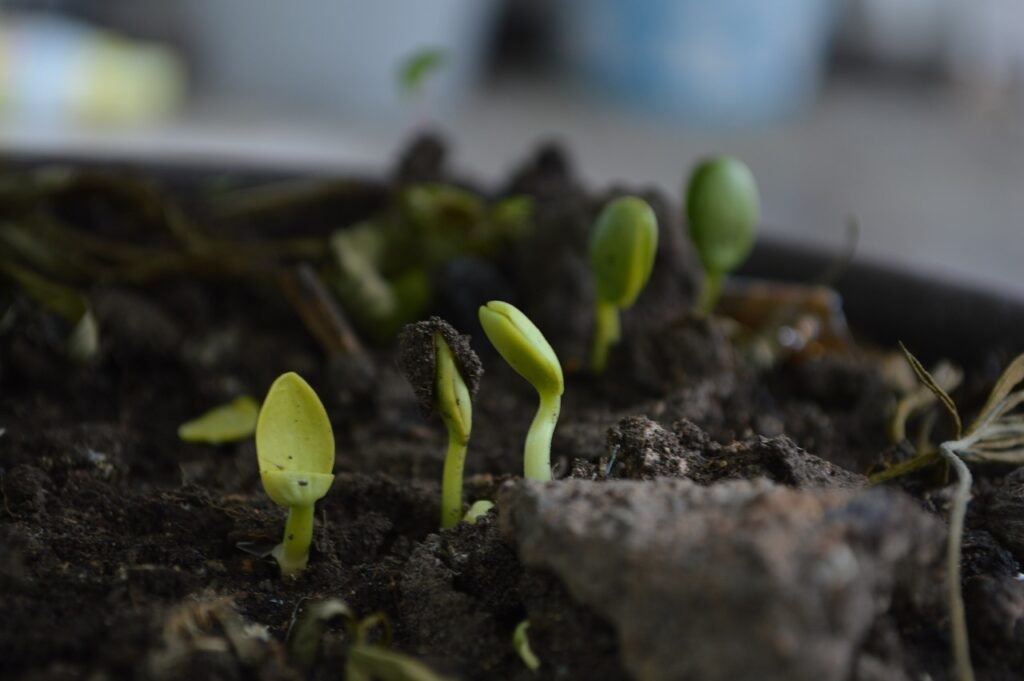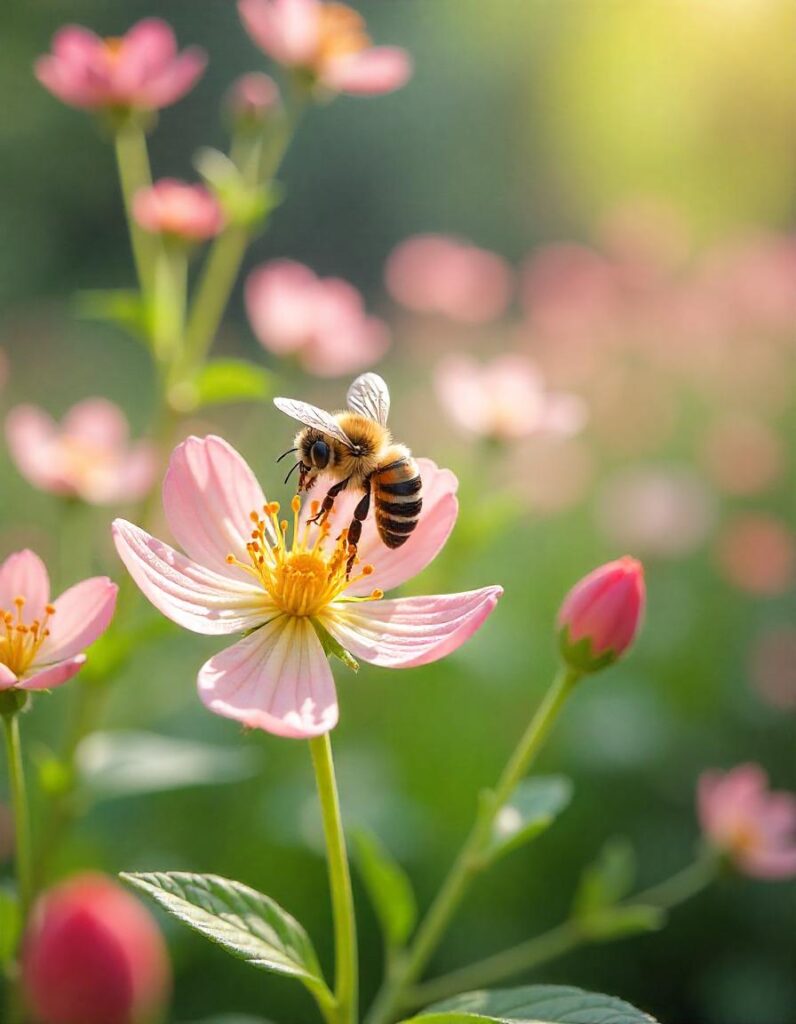Table of Contents
ToggleThe Impact of Organic Farming on Local Ecosystems and Biodiversity
Introduction
Organic farming has been growing in popularity as a sustainable alternative to conventional agriculture. While the focus is often on its environmental benefits, one of the most significant advantages of organic farming is its positive impact on local ecosystems and biodiversity. In this article, we will delve into how organic farming practices affect the health of local ecosystems and contribute to biodiversity conservation. We’ll explore how these practices help improve soil health, promote the survival of native species, and create a healthier environment for all.

What is Organic Farming?
Organic farming refers to a system of agriculture that avoids the use of synthetic chemicals, fertilizers, pesticides, and genetically modified organisms (GMOs). Instead, it relies on natural processes to enhance soil fertility, manage pests, and promote biodiversity. This approach prioritizes environmental health, focusing on long-term sustainability rather than short-term gains.
Key Differences Between Organic and Conventional Farming
Conventional farming often uses synthetic chemicals to increase crop yields, but these chemicals can harm the environment by contaminating the soil, water, and air. Organic farming, on the other hand, utilizes natural methods such as composting, crop rotation, and the use of beneficial insects to manage pests. By avoiding harmful chemicals, organic farming minimizes negative impacts on ecosystems and supports a more balanced and biodiverse environment.

The Role of Organic Farming in Enhancing Soil Health
Soil health is one of the key pillars of organic farming. Healthy soil is essential for supporting plant growth and promoting biodiversity.
How Organic Farming Improves Soil Fertility
Organic farming practices encourage the use of organic matter such as compost, manure, and cover crops, which help maintain soil fertility. These methods not only replenish nutrients but also improve soil structure, increasing water retention and aeration. Healthy soil supports a variety of organisms, from earthworms to beneficial microbes, contributing to a balanced ecosystem.
How Organic Farming Helps Protect Wildlife
Organic farming creates safer and more diverse habitats for wildlife by reducing the use of harmful chemicals that can threaten local species.
Creating Habitats for Pollinators and Other Species
One of the most visible benefits of organic farming is its support for pollinators like bees and butterflies. Organic farms often feature diverse plant life and flowers that provide food and shelter for these important creatures. In turn, these pollinators help increase crop yields and contribute to the overall health of local ecosystems.

Reducing Chemical Usage in Organic Farming
The reduction of chemical use is perhaps the most significant difference between organic and conventional farming.
Impact on Soil and Water Quality
By forgoing synthetic fertilizers and pesticides, organic farming reduces the risk of soil contamination and water pollution. Chemicals from conventional farming can run off into nearby rivers, lakes, and streams, affecting aquatic life and harming the ecosystem. Organic farming helps prevent these negative effects, supporting cleaner, healthier water systems.

Organic Farming and the Conservation of Biodiversity
The Link Between Organic Farming and Climate Change
Organic farming contributes to the conservation of biodiversity by protecting habitats and supporting a diverse range of species.
Preserving Native Plant and Animal Species
Organic farms often contain a variety of crops, native plants, and natural habitats that support local wildlife. By promoting a diverse environment, organic farming helps preserve species that might otherwise be at risk from monoculture farming practices.
The Impact of Organic Farming on Water Systems
Organic farming can have a positive impact on local water systems by reducing harmful runoff and soil erosion.
Reducing Runoff and Erosion
Without the use of synthetic chemicals, organic farms are less likely to contribute to soil erosion. Crop rotation and the use of ground cover plants also help protect the soil, reducing runoff and preventing sedimentation in nearby water bodies. This leads to cleaner water and healthier aquatic ecosystems.
The Link Between Organic Farming and Climate Change
Organic farming practices are increasingly seen as a way to mitigate the effects of climate change.
Organic Practices and Carbon Sequestration
Organic farms have the potential to sequester carbon in the soil, which helps offset greenhouse gas emissions. By focusing on soil health and reducing the need for fossil fuel-based fertilizers, organic farming can contribute to climate change mitigation.
Supporting Local Ecosystems with Organic Farming Practices
Local ecosystems benefit from the integrated practices used in organic farming, such as crop rotation, agroforestry, and maintaining natural habitats.
Crop Rotation and its Ecological Benefits
Crop rotation is a core principle of organic farming. It helps prevent soil depletion, reduces the need for chemical fertilizers, and supports the natural resilience of ecosystems. Crop rotation also helps reduce pest populations and promotes biodiversity by planting a variety of species in a single area.

The Economic Benefits of Organic Farming for Local Communities
Beyond environmental benefits, organic farming can also provide significant economic advantages to local communities.
Supporting Sustainable Agriculture and Rural Economies
Organic farming is often seen as a way to support small-scale, local farmers by creating markets for sustainably grown produce. It can also encourage rural development by providing opportunities for farmers to participate in global organic food markets.
Challenges and Limitations of Organic Farming
Despite its many advantages, organic farming comes with its own set of challenges.
Addressing Common Obstacles
Organic farming can require more labor-intensive practices and may result in lower yields compared to conventional methods. Additionally, the transition to organic farming can be costly and time-consuming. However, with ongoing research and innovation, these challenges are gradually being addressed, making organic farming more accessible and efficient.
The Future of Organic Farming and Biodiversity Conservation
The future of organic farming looks promising, with more people recognizing its role in supporting biodiversity and combating climate change.
Scaling Organic Practices for a Global Impact
As demand for organic products grows, there is increasing potential for organic farming to have a global impact. By scaling organic practices and investing in research, we can promote biodiversity conservation on a larger scale and contribute to a more sustainable agricultural system worldwide.
FAQs
Organic farming promotes healthier soil, reduces water pollution, conserves biodiversity, and supports wildlife habitats by avoiding synthetic chemicals.
Organic farms maintain diverse plant species and provide habitats for wildlife, contributing to the conservation of native plant and animal species.
Organic farming improves soil health by using natural methods such as composting, crop rotation, and reducing chemical inputs, leading to richer, more fertile soil.
Organic farming practices like carbon sequestration and reducing the use of synthetic fertilizers can help reduce greenhouse gas emissions and contribute to climate change mitigation.
Yes, organic farms tend to support a variety of pollinator species, including bees and butterflies, by providing diverse flowering plants and reducing the use of harmful pesticides.
Conclusion
Organic farming plays a crucial role in protecting local ecosystems and promoting biodiversity. By reducing chemical usage, improving soil health, and providing a haven for wildlife, organic farming offers long-term environmental benefits that help create a more sustainable agricultural system. Despite some challenges, the future of organic farming looks bright, with increasing recognition of its vital role in preserving our planet’s natural resources.
